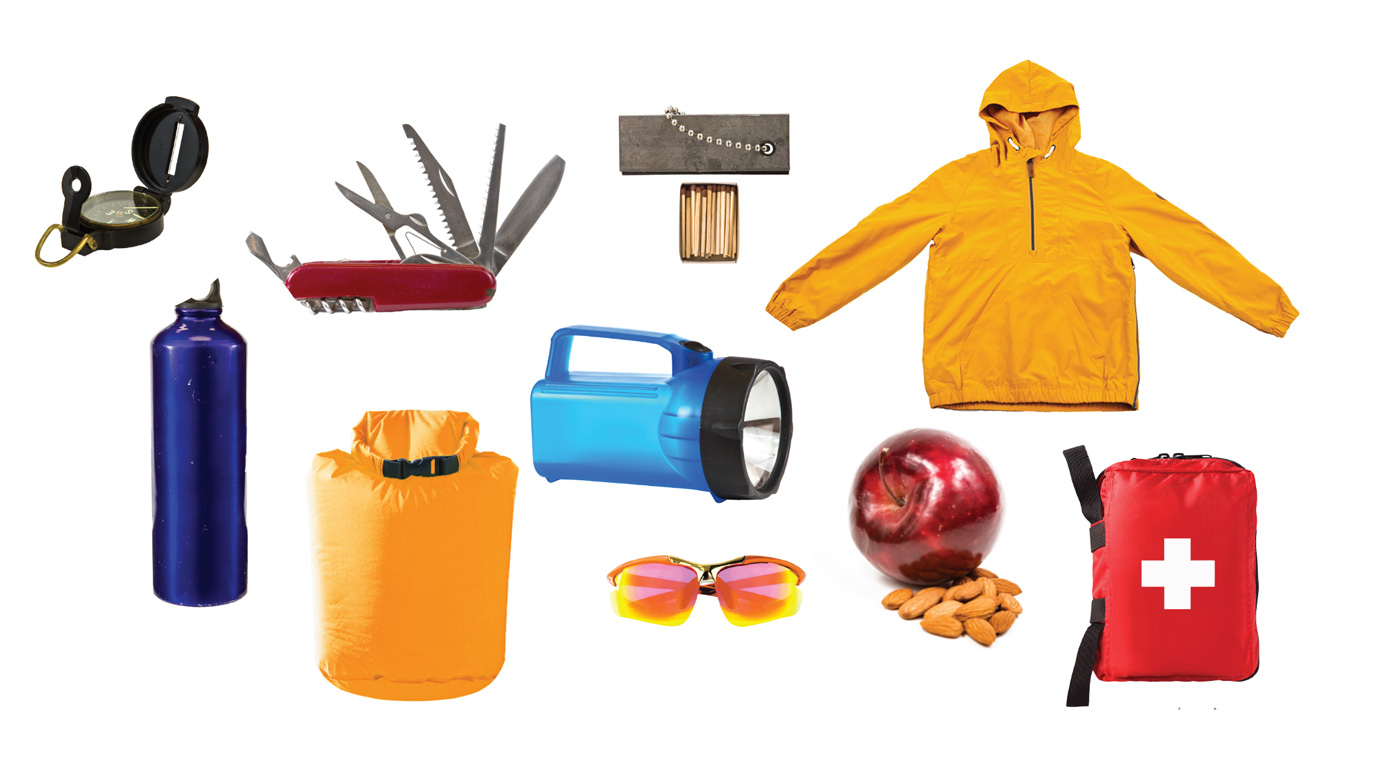10 Essentials for Hiking
Contributed by Friends of the Ruby Mountains
(https://www.facebook.com/friendsoftherubymountains/)
Summer hiking season is here.
Our public lands around Elko offer many outstanding opportunities for hiking. From the gentle family friendly trails at South Fork State Park to the miles of rugged trails in the Ruby Mountains there is a trail for you.
No matter where you plan to hike, it is important to plan ahead. Make a fun adventure a safe adventure! Having the Ten Essentials with you can help you be prepared for minor injuries, sudden weather changes, or unexpected delays.
This list of The Ten Essentials is a starting point for planning your outing. The exact items you take can be tailored to the trip you’re taking. When deciding what to bring, consider factors like weather, difficulty, duration, and distance from help.

Headlamp/flashlight: Lighting is important in case you are out after dark. Headlamps are the preferred light source because they are hands-free. Be sure to pack extra batteries.
First Aid: Be prepared for emergencies by packing first-aid supplies with you. Start with a pre-made kit and modify it to fit your trip and your medical needs. Check the expiration date on all items and replace them as needed. Consider including an emergency guide in case you are faced with an unfamiliar medical emergency.
Navigation: A topographic map and compass should accompany you on any trip that involves anything more than a short, impossible-to-miss footpath or frequently visited nature trail. A good GPS unit can also be a good replacement for the standard map and compass.
Sun protection: Sun protection is necessary to protect your skin and eyes against harsh UV rays that are responsible for sunburns and skin cancer. Consider using sunglasses, sunscreen, and hats. Sun-protection clothing such as pants and long sleeve shirts can also help minimize your exposure to the sun.
Knife/repair kit: Carry a basic repair kit with you to help repair equipment. The kit should include items such as duct tape, a knife, and scissors. Consider packing a multi-tool, a compact version of many tools that can include a knife, screwdriver, can opener, etc. Be sure to bring any tools specific to your trip and your activity.
Fire: Fire can be an emergency heat source for cooking and staying warm. Pack matches (preferably waterproof) and fire starters – items that catch fire quickly and sustain a flame. Familiarize yourself with the fire use regulations of your area before heading out.
Shelter: An emergency shelter is one of the most important elements during an emergency survival situation. It can protect you from severe weather conditions and exposure to the elements. A tarp, bivy sack, or emergency space blanket are all lightweight options.
Food: You should always be prepared for the possibility of changes to your trip plans. Pack an extra day’s supply of food, preferably no-cook items that have good nutritional value in order to keep your energy high. Salty and easy to digest snacks (e.g. trail mix, nuts, and granola bars) work well for outdoor activities.
Water: Staying hydrated on your trip is of utmost importance so pack plenty of water. Physical activity increases your risk of dehydration (loss of water and salts from the body), which can lead to negative health consequences.
Extra clothes: Nature is unpredictable. Be prepared for sudden changes in weather conditions. Pack your raingear plus an extra layer of clothing that reflects the most extreme conditions you could encounter.
Bonus Item – Trash Bag
Pack this 11th essential to making sure that the trails you love stay beautiful for generations to come. A ziplock bag is a great option for keeping the trash you pick up along the trail separate from the rest of your gear. Level up by including a pair of disposable gloves to use when picking up less-pleasant litter.